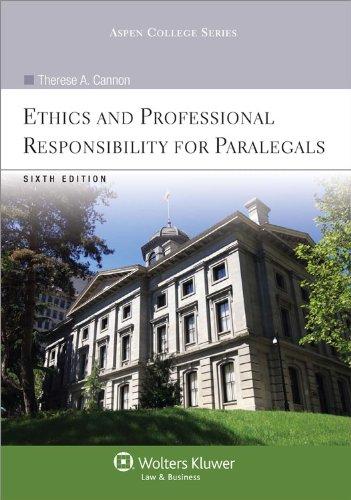This appeal arises from an adversary proceeding initiated by the United States Trustee (Trustee), during the bankruptcy
Question:
This appeal arises from an adversary proceeding initiated by the United States Trustee (‘‘Trustee’’), during the bankruptcy proceeding of Debtor Jayson Reynoso, against Henry Ihejirika, d/b/a Frankfort Digital Services, Ltd. and Ziinet.com (collectively ‘‘Frankfort’’). . . .
The United States Bankruptcy Court for the Northern District found that Frankfort . . . acted as a ‘‘bankruptcy petition preparer’’ within the meaning of 11 U.S.C. 110 . . . [and concluded that] Frankfort had committed fraudulent, unfair or deceptive conduct, and had engaged in the unauthorized practice of law. . . . [The decision was affirmed by the Bankruptcy Appellate Panel.]
Frankfort sold access to websites where customers could access browser-based software for preparing bankruptcy petitions and schedules, as well as informational guides promising advice on various aspects of relevant bankruptcy law.
. . . Reynoso accessed one of Frankfort’s websites . . . , [which]
represented to potential customers, like Reynoso, that its software system offered expertise in bankruptcy law:
Ziinet is an expert system and knows the law. Unlike most bankruptcy programs that are little more than customized word processors the Ziine engine is an expert system. It knows bankruptcy law right down to the state in which you live. . . .
It explained that its program would select bankruptcy exemptions for the debtor and would eliminate the debtor’s ‘‘need to choose which schedule to use for each piece of information.’’
The site also offered customers access to the ‘‘Bankruptcy Vault’’—
a repository of information regarding ‘‘loopholes’’ and ‘‘stealth techniques.’’
For example, according to the site, the Vault would explain how to hide a bankruptcy from credit bureaus and how to retain various types of property.
Reynoso paid $219 for a license to access the Ziinet Engine, including the Vault. . . . The online software prompted Reynoso to enter his personal information, debts, income, assets, and other data into dialog boxes. The program then used the data to generate a complete set of bankruptcy forms. . . .
Reynoso printed the forms and filed his chapter 7 bankruptcy petition.
. . . During the first meeting with creditors, the chapter 7 trustee noticed errors in the petition and, upon questioning Reynoso, learned that he had paid for the assistance of an ‘‘online bankruptcy engine.’’ . . .
Frankfort argues that the creation and ownership of a software program used by a licensee to prepare his or her bankruptcy forms is not preparation of a document for filing under the statute. Whether a software provider may qualify as a bankruptcy preparer under 11 U.S.C.
110(a)(1) is a question of first impression in the Ninth Circuit. We hold that the software at issue in this case qualifies as such.
Frankfort charged fees to permit customers to access web-based software. Frankfort’s software solicited information from the customers.
Critically, it then translated that information into responses to questions on the bankruptcy forms, and prepared the bankruptcy forms for filing using those responses. . . .
In sum, for a fee, Frankfort provided customers with complete bankruptcy petitions. . . . This is materially indistinguishable from other cases in which individuals or corporations have been deemed bankruptcy preparers. . . .
Since ‘‘bankruptcy petition preparers’’ are—by definition—not attorneys, they are prohibited frompracticing law. [Citationsomitted.] . . .
Several features of Frankfort’s business, taken together, lead us to conclude that it engaged in the unauthorized practice of law. To begin, Frankfort held itself out as offering legal expertise. Its websites offered customers extensive advice on how to take advantage of so-called loopholes in the bankruptcy code, promised services comparable to those of a
‘‘top-notch bankruptcy......
Questions about the Case 1 Did the court say that a software program can engage in the practice of law? What do you think of this idea?
2 Do you think that the outcome would have been different if the advertising for the software had not made claims about its expertise?
Was this an important factor?
3 Under the bankruptcy statutes, petition preparers are required to include their names on petitions. Why do you think that this provision was included in the bankruptcy law?
4 What would a court decide if a bankruptcy petition preparer used another company’s software to help petitioners fill in forms? For one court’s view of this unsettled area, see In re Gross, Bankr. E.D.
Va. 8-27-2009, where the court said, ‘‘Even though [the preparer]
may have relied on a computer program rather than her own knowledge or analysis, she, rather than the debtor, effectively chooses which exemptions [to claim]. The act of selecting exemptions requires ‘the exercise of legal judgment.’ . . .’’
5 What are the ramifications of this decision for other legal software providers? How is this different from software to prepare a will or a divorce? What might companies that provide this software do to protect against UPL claims?
Step by Step Answer:

Ethics And Professional Responsibility For Paralegals
ISBN: 272860
6th Edition
Authors: Therese A. Cannon





